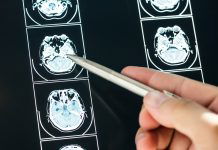
New research from the Perelman School of Medicine reveals a troubling link between head injuries and the risk of stroke.
According to the study, people with a history of head injuries are 34% more likely to have a stroke compared to those who have never had a head injury.
The risk is even greater for individuals who have experienced multiple head injuries.
The study’s first author, Dr. Holly C. Elser, emphasized the importance of preventing head injuries to reduce long-term health risks.
“Head injuries increase the risk of stroke in individuals who may not have had one otherwise,” said Dr. Elser. She advised wearing bike helmets and seatbelts as effective ways to prevent head injuries and minimize health risks.
While it is well-known that traumatic brain injuries (TBIs) can cause short-term issues like memory and learning problems, mental health disorders, and headaches, the long-term impacts are still being discovered.
Recent studies have linked head injuries to serious conditions such as disability, late-onset epilepsy, dementia, and even death.
This new research is part of the Atherosclerosis Risk in Communities Study, which tracked over 13,000 people living in the community (not in hospitals or nursing homes) for 30 years.
The goal was to see if head injuries affect the likelihood of having a stroke caused by a blood clot in the brain, known as an ischemic stroke.
The study excluded people who had a stroke before their head injury.
Head injuries were identified through medical records and self-reports from participants, ranging from mild concussions to severe trauma like skull fractures.
Interestingly, the study found that the severity of the head injury did not affect the rate of stroke later in life. However, people with multiple head injuries had a much higher risk of severe strokes.
Dr. Elser highlighted the importance of early intervention to manage stroke risk in people with a history of head injuries.
“Clinicians should counsel these individuals on healthy diet and exercise practices, which are proven to reduce stroke risk, as well as manage other risk factors with medication, including high blood pressure and high blood cholesterol,” she said.
This research adds to the growing list of conditions associated with head injuries and underscores the critical need for preventive measures. By wearing bike helmets and seatbelts, individuals can significantly reduce their risk of head injuries and, consequently, lower their chances of having a stroke.
If you care about stroke, please read studies about how to eat to prevent stroke, and diets high in flavonoids could help reduce stroke risk.
For more information about health, please see recent studies about how Mediterranean diet could protect your brain health, and wild blueberries can benefit your heart and brain.



